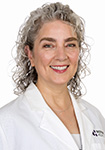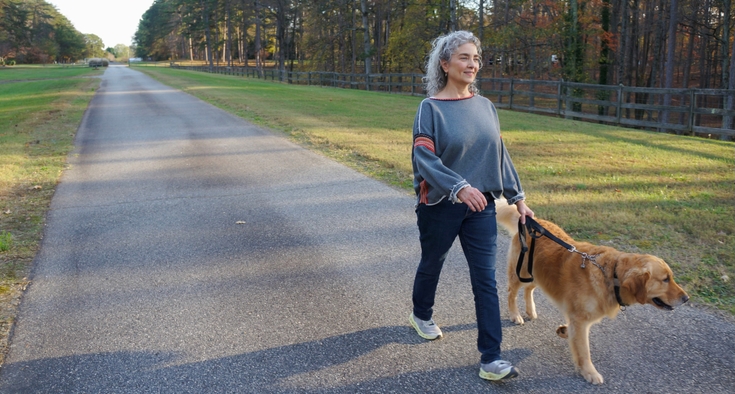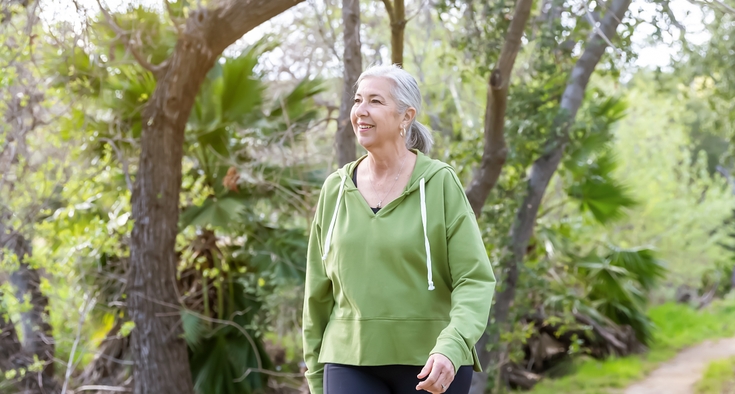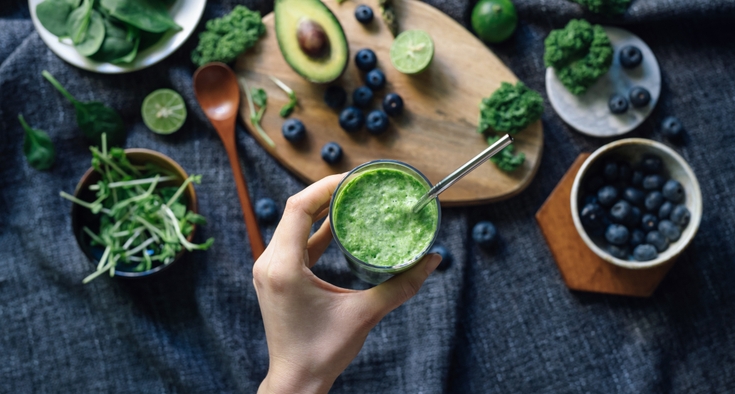If you could lower your odds of suffering a chronic disease and premature death by as much as 80% just by changing the way you live, would you do it?

Dr. Alicia Beal of Novant Health Salem Family Medicine in Winston-Salem said it's possible and reams of research agree.
"Eighty to 90% of our non-communicable disease states are the things we're exposed to or the lifestyle choices we make," she said. "And that's actually good news. It means we can actually do something about it."
Along with her busy family practice, Beal is a specialist in lifestyle medicine, a field focused on preventing, treating and often reversing chronic illnesses such as type 2 diabetes, heart disease and obesity through healthful habits. She's certified by the American College of Lifestyle Medicine.
Lifestyle medicine focuses on six pillars of good health: nutrition, good sleep, physical activity, stress management, social connection and avoiding risky substances. Following all these does not guarantee perfect health, but it increases your chances of fewer medical conditions, and you’ll feel a lot better.
Built on those pillars, here's Beal's formula for a healthier life without prescriptions. Start in areas where you're most likely to succeed and go from there, she recommends. All changes have a big payoff. (See her own story here.)
Your path to good health starts with a checkup.
6 lifestyle changes you can make for good health
1. Eat a rainbow every day.
"Any change is good, but diet is the cornerstone of it all," Beal said. "The No. 1 thing people can do is eat more vegetables and fruit — more plants, less animals." Go for variety — leafy greens, corn, tomatoes, beans, berries, nuts, seeds. Change it up from day to day. And feel free to pile your plate — a plant-based diet has fewer calories.
Strategy: Go slow to help your body adjust. If your current diet is half veggies, half meat, try 70% green, 30% meat and gradually go greener still. Eating lots of veggies makes some people initially gassy, so follow your gut and go as green as you can. The gassiness will go away.
2. Get your Zzzzzs.
Even more important than exercise in Beal's prescription is restorative sleep. The magic number is seven to eight hours a night. Here's why that matters so much: "Sleep is when your body is repairing itself, and that last hour and a half to two hours is when you're processing your fears and anxieties," she said. "People who do not get at least seven to eight hours of sleep a night have higher levels of anxiety. They don't pick up on social cues as well — they think they're functioning, but they end up being more irritable and misunderstanding people."
Strategy: Tune in to your circadian rhythm, the 24-hour clock inside your brain that uses changes in light to regulate cycles of alertness and sleepiness. Have a carb-heavy breakfast like oatmeal 30 to 45 minutes after you get up, Beal suggests. In anticipation, your body will appropriately time the release of a hormone called cortisol that will help you wake you up.
Stay hydrated throughout the day. Take a 20-minute afternoon walk — the blues and greens of nature are soothing and, Beal notes, studies suggest that trees may pump beneficial chemicals into the air you breathe.
Set a regular bedtime and stay away from screens an hour before (or wear blue-blocking glasses if you can't resist) to help your body churn out enough sleep hormone (melatonin) to make you drowsy. Finally, if you've hydrated during the day, your body will naturally pump more blood at night from your core to your limbs to prepare you for shut eye. "One of the signs that we're going to sleep is our feet are warm," Beal said. (If your feet are cold, put on some socks.)
Best doctors. Amazing nurses. Remarkable care.
3. Don't take life sitting down.
Get moving. You've heard it before: Exercise matters. At a minimum, shoot for 150 minutes a week of moderate exercise or 75 minutes of vigorous activity. Lots of us aren’t keen on exercise. That’s OK. Just take baby steps. Better to start slow and build up your times rather than going from zero to 100, hating it and then quitting.
Get your reps in whenever you can — going up on your toes or doing squats for five minutes here and there, stretches at your desk while you work, marching around the room a little at the top of the hour. Everything counts — 10 minutes at a time add up and do make a difference, Beal said. Make a commitment to do what you can.
Strategy: Beal asks patients what lifestyle changes they feel comfortable making. She encourages them to commit to those they are 80% sure they'll be able to do successfully. "If it's a 50-50 chance of success, there's too high a likelihood of failure, so we go for that 80%."
4. Manage stress.
From headaches and constipation to high blood pressure and an increased risk for heart attack and stroke, stress strains the entire body — and makes it hard to get the restorative sleep you need. To protect your mental and physical well-being, managing stress is a must, Beal said.
Strategy: Progressive muscle relaxation is an easy stress-reliever to learn. It involves tensing up particular muscles, then relaxing them — from forehead to foot. Practice makes perfect. Belly breathing is another DIY stress-reliever. If you're a worrier, set aside a time and neutral place for that, Beal urges. She suggests taking five to 30 minutes a day to jot down concerns and reflect on solutions.
"You can train your brain to start saying when you worry, 'OK, we have a time to work on this. We'll circle back to it.' " But don't worry in bed! Find a neutral spot in another room. Beal urges patients who have religious beliefs to seek God's help. "I encourage them to pray about the problems they don't know how to solve."
By the numbers
Heart disease is the No. 1 killer of Americans. Here's how lifestyle changes may affect your risk, according to Dr. Beal:
Work out: Adding 150 minutes a week of moderate exercise without changing your diet slashes heart attack risk 35% to 55%.
Go green: Eating more than 5 servings of fruits and veggies a day reduces heart disease risk by 20% to 25%.
Watch your weight: Maintaining a healthy weight cuts your risk 35% to 55%.
Quit smoking: Giving up tobacco reduces risk of sudden heart attack by 50%.
Connect with others: Avoiding social isolation and loneliness cuts the risk of heart attack by 29% and 32% for stroke.
Go all-out: Making changes in all six lifestyle areas reduces heart disease risk by 90% to 95%.
5. Don't go it alone.
People need one another. In fact, the No. 1 key to a happy life, according to Harvard University researchers who followed more than 700 men of various economic and social backgrounds since the late 1930s, is what's known as social fitness. "You need to feel loved and cared for," Beal said. "You need to have someone that you can connect with, and everyone needs a sense of purpose." Cultivate and cherish close ties with family and friends.
Strategy: Need to build a network? Volunteering is an easy way to connect with people who have similar interests, Beal said. Serve lunch at a food kitchen, help out at an animal rescue, visit hospital patients, help kindergarteners learn to read, lend a hand at church. You'll have a sense of purpose and make new friends. Stay connected.
6. Avoid risky substances.
If you smoke or chew tobacco, quit. Staying away from illegal drugs and limiting alcohol will also help lower your risk for heart and liver disease and even cancer, Beal points out. (The U.S. Centers for Disease Control & Prevention defines moderate drinking as one drink or fewer in a day for women, two or fewer for men.)
Strategy: Set SMART goals. SMART is an acronym that stands for Specific (what will you do to decrease your substance use?); Measurable (how much will you reduce it by?); Attainable (do you have what it takes to follow through?); Realistic (what can you actually do?); Time-connected (how often will you use? how long will you commit?).
Beal shares these strategies with her lifestyle patients and then tries to meet them where they are. Success, she said, builds on success.
"If I have somebody who eats primarily meat and cheese, and they add one serving of fruits and one serving of vegetables a day, studies show that they have decreased anxiety within two weeks just because they did that," she said. "Any change they make in these six areas is going to give them improved health."
















